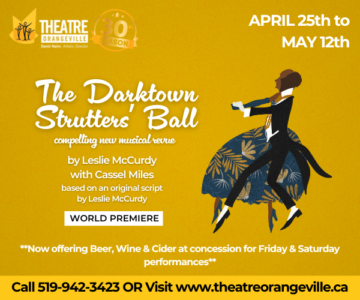Confection, Congestion and Electrification
How One Man’s Obsession with Runaway Sneakers and Rubber Ducks Revolutionized Ocean Science.
Sweet corn
“Corn was once a simple food, chewed off the cob. Now, with corn reinvented and transformed, it takes a chemist to recognize all its offspring. Among these is high-fructose corn syrup (a gooey sweetener used in soft drinks, meats, cheeses, and dozens more foods) that appeases confectionary cravings.
“In the United States, heavy corn subsidies and sugar-import barriers have made HFCS some 20 per cent cheaper than sugar. The United States accounted for nearly 80 per cent of global production in 2004, and U.S. consumers swallowed 58 pounds of the syrup per person last year in various products, according to the U.S. Department of Agriculture.” From Worldwatch, May-Jun/09.
Cracker Jack
“‘Take Me Out to the Ball Game’ was written in 1908 by 29-year-old vaudeville star and Tin Pan Alley songwriter Jack Norworth (who also wrote, with his wife Nora Bayes, ‘Shine On, Harvest Moon’) and composer Albert Von Tilzer. Neither [man] had ever been to a ball game.
“Norworth’s song became such a hit, it was stolen by so many other vaudevillians that he abandoned it in his own act.” From “Baseball’s Anthem,” by Dale Keiger, in Johns Hopkins Magazine, Apr/09.
C-rations
“Price mechanisms alone are unable to do the vital job of reducing carbon emissions. They are too vague, imperfect, and frequently socially unjust. To prevent overconsumption of resources such as fuel during the Second World War, the UK government rejected taxation in favour of rationing because taxation unfairly hit the poor and was too slow to change behaviour. Rationing was the quicker, more equitable option. Carbon rations calculated in line with a safe cap on overall emissions provide a more certain way of hitting emission targets.” From “What Price Civilisation?” by Andrew Simms, in New Scientist, Apr 18/09.
Flotsametrics
“In May 1990, a storm swept 21 shipping containers from a cargo vessel and left 61,820 Nike shoes bobbing in the North Pacific. When they began appearing on North American shores eight months later, ocean scientist Curtis Ebbesmeyer saw an opportunity: He formed a network of beachcombers and used their reports as a way to track ocean currents.
“In January 1992, 28,800 bathtub toys went overboard near the international date line. In December 1994, 34,300 hockey gloves fell into the mid-Pacific. In each case, Ebbesmeyer’s simulations predicted when and where they’d come ashore, and his army of volunteers confirmed the accuracy of the predictions.” From a review in American Scientist, Jul-Aug/09, by Greg Ross, of Flotsametrics and the Floating World: How One Man’s Obsession with Runaway Sneakers and Rubber Ducks Revolutionized Ocean Science, by Curtis Ebbesmeyer and Eric Scigliano (Collins).
Electri-city
“Britain’s Eric Clapton may be famous for going unplugged, but London is all for electrification. Mayor Boris Johnson has announced that his city will become the electric car capital of Europe. Pledging more than $35 million toward the program’s anticipated $107 million price tag, Johnson wants to build 25,000 charging points throughout the city. If he’s successful, electric cars would continue to be exempt from London’s congestion fees, all new buildings will install charging points, and at least a fifth of new parking spaces will be equipped with plug-ins.” From Alternatives Journal, 35:4/09.
E-bikes
“Bicycle production was up 3.2 per cent in 2007 to 130 million units, continuing a trend of several years. China produced two of every three bikes made worldwide.
“Electric bikes, which use an electric motor to assist pedalling, are a burgeoning market segment, with most production again taking place in China. Sales of electric bikes in Germany nearly tripled in 2007.” From Worldwatch, Jul-Aug/09.
“Hard times”
“Free Viagra for the unemployed! Pharmaceutical company Pfizer earned this catchy headline this week with its plans to make 70 products free to US residents who have lost their jobs.
“Anybody who has been taking one of the 70 drugs for at least three months and became unemployed after 1 January this year can apply.” From New Scientist, May 23/09.
Eater odors
“‘Even your best friends won’t tell you,’ a classic mouthwash ad warned. But OkayToKiss will bluntly let you know if your mouth is foul. The new, patent-pending saliva test, developed by microbiologist Mel Rosenberg of Tel Aviv University in Israel and colleagues, turns blue if it senses high quantities of certain enzymes.
“OkayToKiss is one byproduct of a boom in research on the microbiology of odors, says Rosenberg. At the first-ever symposium on the field, held last week at the meeting of the American Society for Microbiology in Philadelphia, he and about 150 other scientists discussed the tiny lives that underlie flatulence, manure, livestock, and pet odors.” From Science, May 29/09.
When you sneeze your eyes can pop out
“False. The fluid bath around your eyes comfortably absorbs the considerable air pressure built up during a sneeze, and for added safety, the blink reflex prevents our eyes from extruding.” From New Scientist, Apr 18/09.
Nasty works
“In Italy, for 30 years under the Borgias, they had warfare, terror, murder, bloodshed, but they produced Michelangelo, Leonardo da Vinci, and the Renaissance. In Switzerland, they had 500 years of brotherly love, democracy and peace, and what did that produce? The cuckoo clock.” Orson Welles.
Conservative
“The Great Depression lasted for the better part of a decade – long enough for people’s consumption and saving habits to change, permanently. The resourceful behaviour still portrayed by many Americans who lived through the Great Depression was brought about by necessity. Resources, financial and otherwise, were limited and people learned to use them wisely. Truly conservative living was the result.” From Home Power, Apr-May/09.
Base pay
“Managing is getting paid for the home runs someone else hits.”
Casey Stengel.






